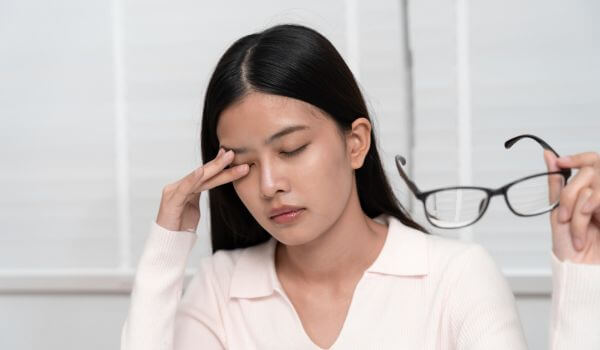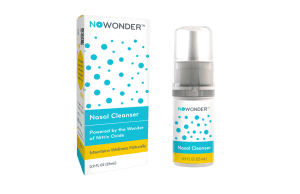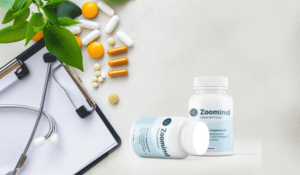 If you’re anything like me, and someone close to you has Attention-deficit/Hyperactivity Disorder (ADHD), you’ve probably wondered whether there are natural ways to help manage it. Maybe you’re wary of ADHD medications because you’ve heard some people talk about the side effects that they or someone they know have experienced, or perhaps you just want to supplement a treatment plan with holistic approaches. Whatever the case, the good news is that some people have found a natural remedy for ADHD that has real science backing it up. The tricky part? Figuring out which ones are actually effective.
If you’re anything like me, and someone close to you has Attention-deficit/Hyperactivity Disorder (ADHD), you’ve probably wondered whether there are natural ways to help manage it. Maybe you’re wary of ADHD medications because you’ve heard some people talk about the side effects that they or someone they know have experienced, or perhaps you just want to supplement a treatment plan with holistic approaches. Whatever the case, the good news is that some people have found a natural remedy for ADHD that has real science backing it up. The tricky part? Figuring out which ones are actually effective.
While there’s no sense in simply believing any claim of a magic cure, certain natural treatments for ADHD have been reported by reliable sources as being able to make a noticeable difference in improving attention, reducing impulsivity, and supporting executive functioning, which is the basic set of skills that help with planning, organization, and self-control. I’ve explored three research-backed strategies that might just become your new go-to tools for improved ADHD symptoms, and I’m happy to share them with you here..
ADHD is not recognizable from the inside
Let’s take a step back to understand the condition itself. The most important thing to come away with in any rational analysis of ADHD is that people with ADHD don’t understand that they are different. It’s not the same as for a person with a physical disability, which causes visible and tangible symptoms. People with ADHD regard themselves as quite normal. In fact, they may look at us as if we have some problems simply because we are behaving differently from them, and in their own estimation, we are the ones who are “abnormal”, and we shouldn’t be expecting them to mimic us.
Having said that, there is a need to find a way to adapt a person with ADHD’s patterns of behavior so that they do fit in with general behavioral norms and can benefit from being part of a wider society. This gives greater impetus to the idea we are exploring here, which is to find ways of adapting the environment around a person with ADHD in such a way that they don’t get the feeling that they have something wrong that has to change. Rather, it needs to be a way to make the world around them adapt so that they feel a part of the whole.
Changing how the brain processes the outside world
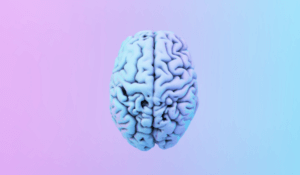 The most common symptoms of ADHD in children may be trouble sitting still or following instructions, while adults with ADHD might find themselves constantly forgetting appointments or procrastinating on important tasks. These challenges stem from differences in the brain’s executive functioning, particularly in areas that regulate dopamine and norepinephrine, the two key neurotransmitters responsible for focus and motivation.
The most common symptoms of ADHD in children may be trouble sitting still or following instructions, while adults with ADHD might find themselves constantly forgetting appointments or procrastinating on important tasks. These challenges stem from differences in the brain’s executive functioning, particularly in areas that regulate dopamine and norepinephrine, the two key neurotransmitters responsible for focus and motivation.
Since ADHD affects how the brain processes rewards, it can make routine tasks feel incredibly boring and difficult to complete. That’s why traditional treatments often focus on boosting neurotransmitter activity. But natural remedies for ADHD that could help the brain function more efficiently would be a great way to allow people with ADHD to see themselves in the same light as we see ourselves, and that can lead to them performing everyday functions the same way as the rest of us do!
Omega-3 fatty acids are brain food for ADHD
If you’re looking for a natural treatment for ADHD that’s easy to incorporate into your daily routine, omega-3 fatty acids are a great place to start. The brain is made up of about 60% fat, and it thrives on essential fatty acids like omega-3s. Research has shown that omega-3 supplements can significantly improve focus, impulse control, and emotional regulation in children with ADHD and adults alike.
How Omega-3s Help ADHD:
- Studies suggest that omega-3s help regulate dopamine levels, which can lead to better focus and concentration.
- Studies have found that omega-3 supplementation improves cognitive flexibility, working memory, and emotional control.
- Some research indicates that omega-3s may be as effective as a mild stimulant medication in reducing hyperactivity.
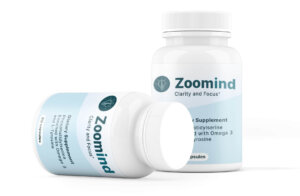 Foods rich in omega-3s include ocean fish like salmon and sardines, flaxseeds, and walnuts. However, there are many instances when a steady diet of these sources can either be rejected (some people are not fans of fish, and in too many cases, kids refuse to eat it) or it’s too expensive (especially the case of fish, where it needs to be a main component of at least three meals each week). In such cases, it makes sense to turn to a high-quality omega-3 supplement such as Zoomind, which is far lower in cost and which can be easily incorporated into the daily menu. Zoomind is a 100% natural product that becomes a part of the daily food intake.
Foods rich in omega-3s include ocean fish like salmon and sardines, flaxseeds, and walnuts. However, there are many instances when a steady diet of these sources can either be rejected (some people are not fans of fish, and in too many cases, kids refuse to eat it) or it’s too expensive (especially the case of fish, where it needs to be a main component of at least three meals each week). In such cases, it makes sense to turn to a high-quality omega-3 supplement such as Zoomind, which is far lower in cost and which can be easily incorporated into the daily menu. Zoomind is a 100% natural product that becomes a part of the daily food intake.
Exercise as ADHD therapy
If there’s one effective treatment for ADHD that doesn’t require pills or supplements, it’s movement. Exercise has been shown to increase dopamine levels in the brain, mimicking the effects of stimulant ADHD medications. The best part is that any type of movement can help, whether it’s structured exercise, dancing in the kitchen, or a spontaneous game of tag. This reinforces the central idea that the person with ADHD isn’t being treated for some abnormality but is simply playing the same game as everyone else and enjoying it as well!
How exercise helps ADHD
- Movement helps to increase the levels of dopamine and norepinephrine in the brain, and in turn that helps improve focus and motivation.
- Exercise has been shown to allow for better impulse control and problem-solving skills. This in turn boosts executive functioning.
- Physical activity can shift a person’s focus away from pressure points, which in turn reduces levels of stress and anxiety, helping to regulate emotions and reduce frustration levels.
For children with ADHD, movement should be frequent and engaging. Activities like martial arts, swimming, and team sports are great because they involve structured movement with clear rules. Adults can benefit from activities like yoga, running, or even short bursts of exercise throughout the day.
Sleep can be an ADHD superpower 
People with ADHD often struggle with sleep. Whether it’s trouble falling asleep, staying asleep, or waking up feeling exhausted, poor sleep can make symptoms of ADHD worse. The irony? ADHD itself makes it harder to develop good sleep habits. But here’s the thing. Fixing sleep with a natural remedy can be a game-changer when it comes to improving attention and executive functioning.
How to Improve Sleep with ADHD:
- Establish a routine and stick to it. Going to bed and waking up at the same time every day (even on weekends) helps regulate the body’s internal clock.
- Let melatonin accumulate. Screens, phones and tablets should be switched off well before bed time. The blue light can mess with melatonin production, and melatonin is a key to falling asleep and staying asleep.
- Let the brain slow down to get into sleep mode. Creating a relaxing wind-down routine, with things like shared reading, taking a warm bath, or practicing deep breathing exercises, can help signal to the brain that it’s time to rest.
- There is some research that suggests that keeping the brain’s levels of magnesium and zinc high may help with sleep quality in people with ADHD. There’s this simple Sleep Pack that bundles melatonin with magnesium, along with minerals that play a role in boosting the brain’s own levels of dopamine.
Prioritizing sleep isn’t always easy, but it can make a huge difference in daily functioning. When the brain gets the rest it needs, everything from focus to emotional regulation improves.
Finding what works for you
We’re all different, so there’s no single natural remedy that will work for everyone with ADHD. However, combining these strategies can create a well-rounded treatment plan. Whether it’s adding an omega-3 supplement, making movement a daily habit, or fine-tuning the person with ADHD’s sleep habits, small changes can lead to significant improvements.
It’s important to remember that ADHD is a highly individualized condition. What works for one person may not work for another. The key is to experiment with different strategies and track what makes the biggest impact. And, of course, always consult with a healthcare professional before making major changes to your or your child’s ADHD management plan.
By taking a holistic approach, you can support improved ADHD symptoms by incorporating a natural remedy in a way that feels normal, sustainable, and empowering. ADHD isn’t just about the challenges. It’s about learning how to work with the person, not against them. And with the right tools, that journey becomes a whole lot easier.
FAQs
Does omega-3 deficiency contribute to ADHD?
Fatty acids play an important role in brain health and function, but it’s not yet established that the lack of omega-3 is a direct cause of ADHD. It has been found that people with ADHD commonly have reduced omega-3 levels in their blood. The component of omega-3 fatty acids called DHA plays an important role in brain function.
Why does the body run out of omega-3?
The body does not produce essential fatty acids on its own, so it has to come from food. Fatty acids like omega-3 are not commonly found in the flesh of animals and most plants but they are at high levels in ocean fish, especially salmon, mackerel and sardines. The rise in consumption of processed foods and meat has disrupted the natural intake of this nutrient, and so supplements are often the most convenient way to obtain enough omega-3.
How do I cure omega-3 deficiency?
Omerga-3 deficiency can’t be cured, and the only way to address it is to include create a natural remedy that provides enough omega-3 in the diet. It’s recommend to each two to three servings of ocean fish each week to meet regular needs. For someone who is already low in omega-3s, this amount could need to increase to four or five servings weekly until proper levels are restored. The easiest alternative to this is to include a supplement rich in omega-3 fatty acids, like Zoomind.




